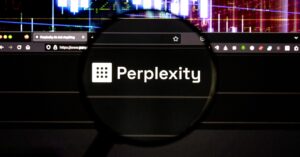June 22, 2024:
The Eiffel Tower is 330 meters tall, and the nearest pizza parlor is 1.3 miles from my house. These facts were astoundingly easy to ascertain. All I had to do was type some words into Google, and I didn’t even have to spell them right.
For the vast majority of human history, this is not how people found stuff out. They went to the library, asked a priest, or wandered the streets following the scent of pepperoni. But then, for a brief period when search engines existed but it was too expensive to use them on your shiny new phone, people could call or text a stranger and ask them anything.
The internet first became available on cell phones in 1996, but before affordable data plans, accidentally clicking the browser icon on your flip phone would make you sweat. In the early 2000s, accessing a single website could cost you as much as a cheeseburger, so not many people bothered to Google on the go.
Instead, a variety of services sprang up offering mobile search without the internet. Between 2007 and 2010, Americans could call GOOG-411 to find local businesses, and between 2006 and 2016, you could text 242-242 to get any question answered by the company ChaCha. Brits could call 118 118 or text AQA on 63336 for similar services. Behind the scenes, there were no artificially intelligent robots answering these questions. Instead, thousands of people were once employed to be Google.
“Some guy phoned up and asked if Guinness was made in Ireland, people asked for the circumference of the world,” says Hayley Banfield, a 42-year-old from Wales who answered 118 118 calls from 2004 to 2005. The number was first launched in 2002 as a directory enquiries service—meaning people could call up to find out phone numbers and addresses (back then calls cost an average of 55 pence). In 2008, the business started offering to answer any questions. Although Banfield worked for 118 118 before this change, customers would ask her anything and everything regardless. “We had random things like ‘How many yellow cars are on the road?’”
While directory enquiry lines still exist, Banfield worked during their boom—she answered hundreds of calls in her 5:30 pm to 2 am shifts—and quickly noticed patterns in people’s queries. “Anything past 11 pm, that’s when the drunk calls would come in,” she says. People wanted taxis and kebab shops but were so inebriated that they’d forget to finish their sentences. Sometimes, callers found Banfield so helpful that they invited her to join them on their nights out. As the evening crept on, callers asked for massage parlors or saunas—then they would call back irate after Banfield recommended an establishment that didn’t meet their needs.
The “pizza hours” were 8 pm to 10 pm—everyone wanted the number for their local takeout. Banfield had a computer in front of her in the Cardiff call center, loaded with a simple database. She’d type in a postcode (she had memorized all of the UK’s as part of her training) and then use a shortcut such as “PIZ” for pizza or “TAX” for taxi. People sometimes accused Banfield of being psychic, but if the power had gone out in a certain area, she automatically knew that most callers wanted to know why.


























